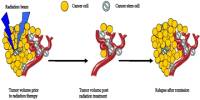Current HIV-1 treatments have been shown to be highly efficient at slowing the virus’s progression in the body while having little adverse effects. A combination of HIV-1 medications is used in daily antiretroviral therapy (ART).
Everyone with HIV is advised to use antiretroviral therapy (ART). Although antiretroviral therapy (ART) cannot cure HIV, it can help patients with the virus live longer and healthier lives. The risk of HIV transmission is also reduced with ART.
However, for a variety of reasons, some HIV-1 patients are unable to use antiretroviral therapy (ART). Antibody-based treatments are another possibility that is currently being explored, although it is difficult to forecast which ones will be most appropriate for these more expensive treatments.
HIV drugs lessen the risk of HIV transmission by lowering the amount of HIV in the body. The reduction of a person’s viral load to undetectable levels is one of the key goals of HIV treatment. A viral load that is undetectable suggests that the level of HIV in the blood is too low for a viral load test to detect.
Boston Medical Center (BMC) researchers have uncovered certain virus traits that can assist predict the efficiency of HIV-1 treatments employing antibody-based therapy, according to a study published in the Journal of Virology.
HIV-1 virus features were identified to predict therapy success with a specific antibody treatment utilizing sequence-based approaches, led by Manish Sagar, MD, an infectious diseases physician at BMC.
These findings will allow physicians to make better-informed decisions on treatment plans for patients with HIV-1, ultimately treating the virus to slow it down earlier. Making this process more efficient will only improve patient care while reducing the time and money spent on finding the right treatment for these patients.
Sagar
The virus traits revealed could be utilized to evaluate whether a patient is a good or bad candidate for specific antibody-based treatments in the future, saving time and money.
Antibody therapies bind to the HIV-1 envelope protein, which shields the virus and helps it evade being recognized by the immune system. These envelope proteins also have a lot of DNA sequence variation, which gives us information about the virus and whether or not a treatment will work.
People who have been diagnosed with HIV should begin taking HIV medications as soon as feasible. Starting HIV drugs as soon as possible is extremely crucial for persons with AIDS-defining symptoms or early HIV infection.
Because knowing the envelope sequence alone makes it impossible to anticipate if an antibody-based therapy will be effective, sequence information is frequently obtained before patients begin HIV-1 medications to ensure that their virus will be responsive to the prescribed medicines.
The researchers discovered HIV-1 envelope sequence patterns that predict therapeutic success with a specific type of antibody treatment. For HIV treatment regimens, there are a variety of HIV drugs available. An HIV treatment regimen is chosen based on a person’s specific needs.
“These findings will allow physicians to make better-informed decisions on treatment plans for patients with HIV-1, ultimately treating the virus to slow it down earlier, “ says Sagar, also an associate professor of medicine and microbiology at Boston University School of Medicine.
“Making this process more efficient will only improve patient care while reducing the time and money spent on finding the right treatment for these patients.”
Antibody-based therapy with less frequent doping are effective against drug-resistant variations and may improve humoral responses, which are critical for bacterial pathogen defense.
















